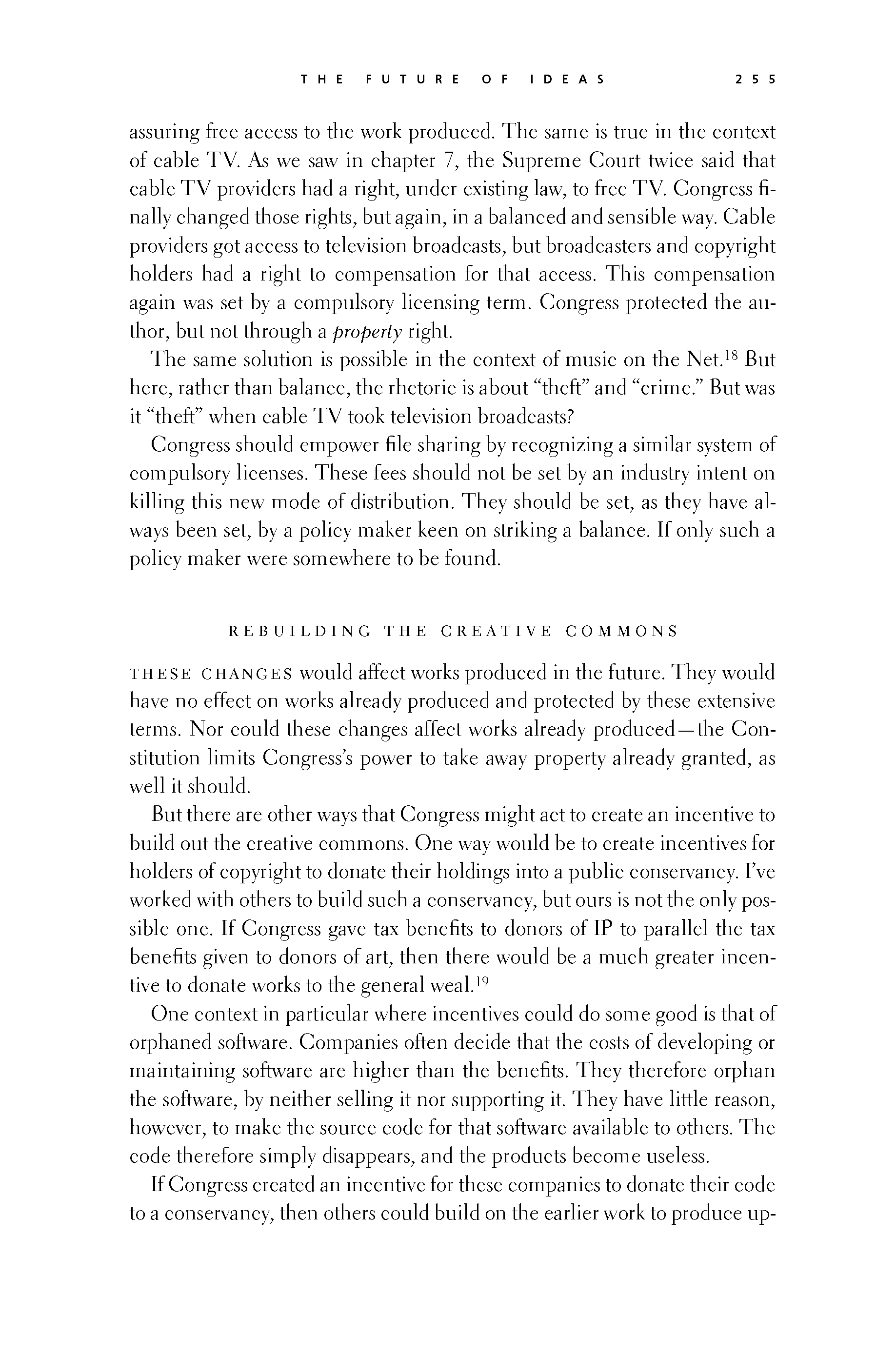 p254 _
-chap- _
toc-1 _
p255w _
toc-2 _
+chap+ _
p256
p254 _
-chap- _
toc-1 _
p255w _
toc-2 _
+chap+ _
p256
assuring free access to the work produced. The same is true in the context
of cable TV. As we saw in Chapter 7, the Supreme Court twice said that
cable TV providers had a right, under existing law, to free TV. Congress fi-
nally changed those rights, but again, in a balanced and sensible way. Cable
providers got access to television broadcasts, but broadcasters and copyright
holders had a right to compensation for that access. This compensation
again was set by a compulsory licensing term. Congress protected the au-
thor, but not through a _property_ right.
The same solution is possible in the context of music on the Net.[14-18] But
here, rather than balance, the rhetoric is about "theft" and "crime." But was
it "theft" when cable TV took television broadcasts?
Congress should empower file sharing by recognizing a similar system of
compulsory licenses. These fees should not be set by an industry intent on
killing this new mode of distribution. They should be set, as they have al-
ways been set, by a policy maker keen on striking a balance. If only such a
policy maker were somewhere to be found.
/tab\/tab\REBUILDING THE CREATIVE COMMONS/tab\/tab\
These changes would affect works produced in the future. They would
have no effect on works already produced and protected by these extensive
terms. Nor could these changes affect works already produced -- the Con-
stitution limits Congress's power to take away property already granted, as
well it should.
But there are other ways that Congress might act to create an incentive to
build out the creative commons. One way would be to create incentives for
holders of copyright to donate their holdings into a public conservancy. I've
worked with others to build such a conservancy, but ours is not the only pos-
sible one. If Congress gave tax benefits to donors of IP to parallel the tax
benefits given to donors of art, then there would be a much greater incen-
tive to donate works to the general weal.[14-19]
One context in particular where incentives could do some good is that of
orphaned software. Companies often decide that the costs of developing or
maintaining software are higher than the benefits. They therefore orphan
the software, by neither selling it nor supporting it. They have little reason,
however, to make the source code for that software available to others. The
code therefore simply disappears, and the products become useless.
If Congress created an incentive for these companies to donate their code
to a conservancy, then others could build on the earlier work to produce up-
[[255]]
p254 _
-chap- _
toc-1 _
p255w _
toc-2 _
+chap+ _
p256